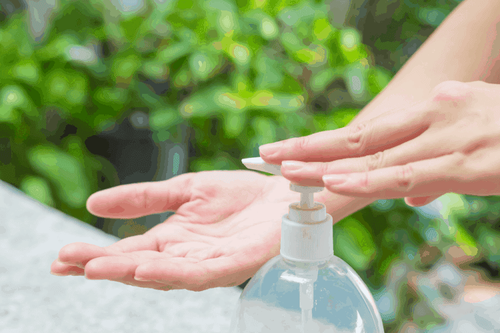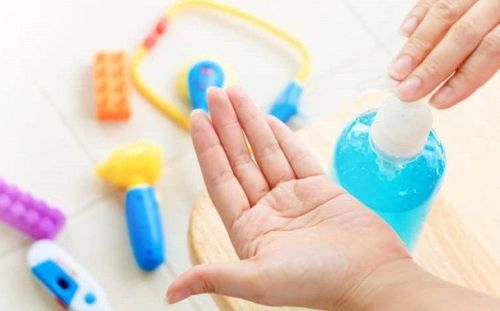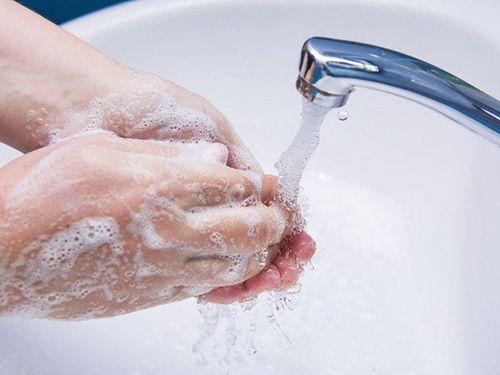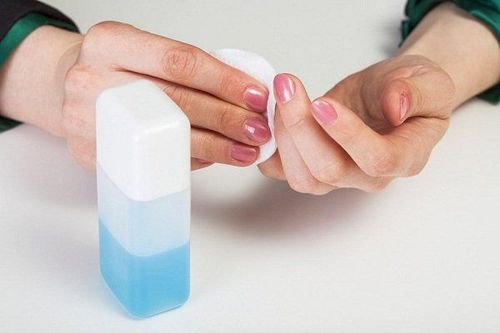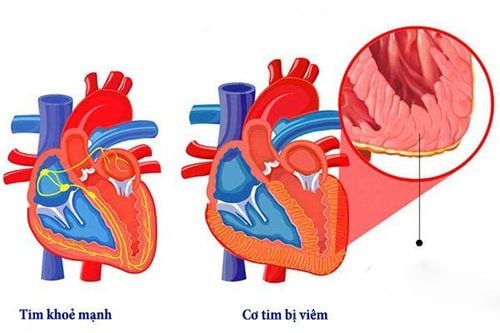This is an automatically translated article.
We all know hand washing is important, it's the best way to avoid getting sick, and especially keeping children's hands clean helps prevent the spread of disease, but whether hand sanitizer or soap Should it be used for children? Also, when you want to quickly disinfect your hands, you can get a bottle of hand sanitizer, but how effective is hand sanitizer compared to washing hands with soap and water? In this article we will provide more useful information about hand sanitizer and soap when used on children.
1. Hand hygiene for children
A recent study published in the journal Pediatrics found that young children who washed their hands with alcohol-based hand sanitizers were less likely to get sick than children who used regular soap and hand sanitizer. The study followed more than 900 children under the age of 3 who attended kindergarten in Almeria, Spain. They divided the children into 3 groups: One group washed their hands with soap and water, another group washed their hands with hand sanitizer, and a control group continued to receive the usual hand washing practice provided by the nursery.
For 8 months, children, their parents and nursery staff in the soap, water and hand sanitizer group must follow strict hand hygiene habits. This includes washing your hands after entering class, before and after eating, washing your hands after playing outside, returning home, after coughing, sneezing or blowing your nose, and washing your hands after changing clothes or changing diapers. for children.
When the study was coming to an end, the researchers re-statisticed and found that the children in the soap and water group missed school slightly more than the children in the group who used hand sanitizer. The risk of respiratory-related infections such as colds, sore throats or coughs was also 21% higher, and this group of children also had a higher rate of being prescribed antibiotics for treatment. Children in the control group also did not have better results than the group that used hand sanitizer.
2. Should children use hand sanitizer or soap?
However, before parents think about ditching soap and water in favor of hand sanitizer, they need to keep a few points in mind:The findings are based on one study only. Other studies or children who followed a different hand-washing routine were more likely to get really different results. The US Centers for Disease Control and Prevention (CDC) still recommends washing hands with soap and water as the best way to prevent bacteria or viruses from entering the child's body. Experts also say soap removes some germs better than hand sanitizer. According to the CDC, hand sanitizer doesn't work well with hands that are too dirty or greasy. So, if your child has just played in the garden or dipped his hands in cookie dough, soap would probably be the best choice for parents to clean their baby's hands.
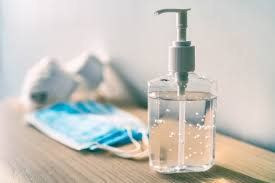
Nước rửa tay không hoạt động hiệu quả trong một số trường hợp
Use sanitizer with at least 60% alcohol. Experts say that alcohol is needed to be able to kill bacteria most effectively. Typically, hand sanitizers available in the market have about 70% alcohol content. Supervise children while washing hands. Some types of hand sanitizer have a relatively eye-catching scent and color, so it is easy for children to mistake it for drinking. And that is the cause of some cases of hand sanitizer poisoning in children. After your child has finished washing their hands, keep the hand sanitizer out of their reach. In addition, no matter which method you choose, parents also need to follow and form a habit for children to wash their hands according to the correct steps of hand washing and each time they wash their hands for no less than 20 seconds.
Experts also give an explanation for why washing hands with soap will clean better than washing hands with regular water or hand sanitizer. That's because the surfactants in soap are better able to push dirt and bacteria out of the skin, and people tend to rub their hands more thoroughly when using soap to wash, which further increases the likelihood of them getting worse. ability to remove bacteria from the skin.
A surfactant is a substance that, when added to water, lowers the surface tension of the water. A decrease in surface tension increases the spreading and wetting capacity of water. The foam created when washing hands with soap, together with the friction caused by rubbing or rubbing hands together, helps to remove both visible and invisible dirt.
Most of us have been taught how to wash our hands properly since childhood. However, as people grow older and busier, those hand washing techniques are gradually forgotten or simply, each of us cannot spend a little more time on hand washing. Therefore, experts want to remind each person about the technique of washing hands with soap as follows:
Wet hands with clean water under running water. Turn off the faucet and start applying soap. Make soap bubbles by rubbing your hands together. Remember to erase the back of the hand, between the fingers and under the fingernails. Scrub your hands for at least 20 seconds. Most people rush to skip this step, but scientific evidence has shown that 20 seconds is the minimum time to wash your hands to get rid of bacteria. Wash your hands under clean running water. Friction caused by scrubbing while washing hands and running water from the faucet will remove dirt, germs and soap from your child's hands. Dry your hands with a clean towel or paper towel. It's harder for bacteria to travel when hands are dry.
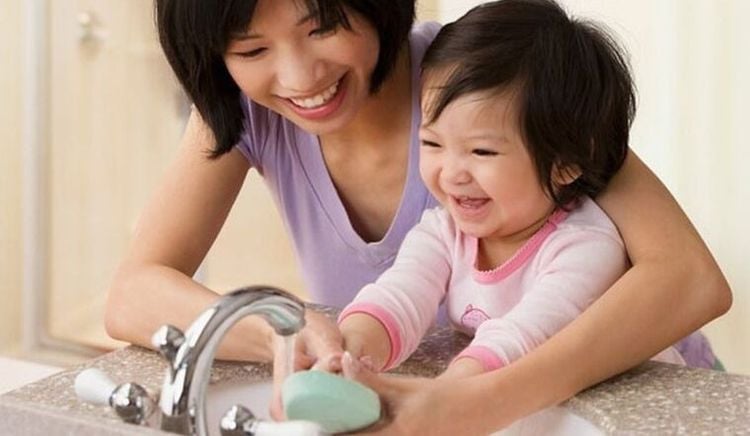
Trẻ cần được hướng dẫn rửa tay đúng cách bằng xà phòng và nước sạch
Hand sanitizer can still be used in situations where soap and clean water are not readily available, such as in the case of a local storm that has disrupted the water system or operation in busy centers . Experts acknowledge the usefulness of hand sanitizer in these cases but also warn of their limitations. Alcohol-based hand sanitizers can quickly reduce the number of bacteria on hands, but sanitizers do not remove all types of bacteria. In particular, some alcohol-free hand sanitizers both do not kill bacteria and cause skin irritation.
Soap and clean water is said to be the best method of hand washing to prevent the entry and spread of bacteria and viruses that cause disease. However, whether using soap and water or using hand sanitizer, the important thing is not in the type of products used but in how people clean their hands with them. Wash your hands with soap and water following the correct procedure for a minimum of 20 seconds. If using hand sanitizer, choose those with at least 60% alcohol content. Those are the tips for parents to be able to wash their baby's hands in the most effective way.
In addition to taking care of children, keeping clean to prevent diseases that babies often get, parents should pay attention to nutrition to improve children's resistance. At the same time, add supporting foods containing lysine, essential micro-minerals and vitamins such as zinc, chromium, selenium, B vitamins,... snacks and less digestive problems.
Parents can learn more:
Why do you need to supplement Lysine for your baby?
The role of zinc - Guidelines for reasonable zinc supplementation
Please visit the website Vinmec.com regularly and update useful information to take care of your baby and family.
Reference source: babycenter.com; vitalrecord.tamhsc.edu; bestcaretoday.com





